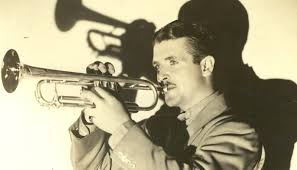LISTEN HERE
PLAYLIST
Roy Bargy "Raisin' the Rent" 1933 on Victor
The Boswell Sister "Everybody Loves My Baby" 1932 on Brunswick
Frankie Trumbauer and his Orchestra "Troubled" 1934 on Victor
Bunny Berigan · Gene Gifford and His Orchestra "Nuthin' But the Blues" 1935 on Victor
Benny Goodman & His Orchestra "Sometimes I'm happy" 1935 on Victor
Benny Goodman & His Orchestra "King Porter Stomp" 1935 on Victor
Glenn Miller Orch w. Berigan "Solo Hop" 1935 on Columbia
Bunny Berigan and his Blue Boys "Chicken and Waffles" 1935 on Decca
Bunny Berigan and His Orchestra "On Your Toes" 1935 on Victor
Bunny Berigan and his Blue Boys "Swing Mr Charlie" 1936 on Brunswick
Bunny Berigan "i Can't Get Started" 1936 on Vocalion
Bunny Berigan and His Orchestra "A Melody From the Sky" 1936 on Vocalion
Bunny Berigan and His Orchestra "Black Bottom" 1937 on Victor
Bunny Berigan and His Orchestra "Prisoner's Song" 1937 on Victor
Tommy Dorsey and His Orchestra "Song of India" 1937 on Victor
Bunny Berigan and His Orchestra "Jazz Me Blues" 1939 on Victor
Bunny Berigan and His Orchestra "Ain't She Sweet" 1939 on Victor
Bunny Berigan and His Orchestra "Me and My Melinda" 1942 on Victor





.jpeg)



